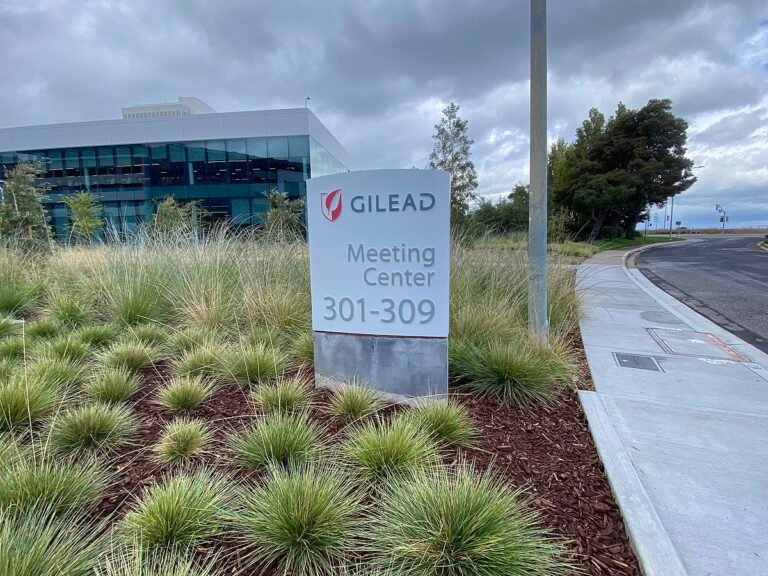
Gilead Sciences, Inc. (NASDAQ:GILD) surged around 4% to $84.58 in early trading session on Friday as The company announced that its Board of Directors has declared a 2.7% increase in its quarterly cash dividend, effective in the first quarter of 2023. The increased dividend will result in a quarterly dividend of $0.75 per common share. The dividend will be paid on March 30, 2023, to stockholders of record as of March 15, 2023. Dividends in the future will be subject to Board approval.
Gilead Sciences (GILD) reported earnings per share of $1.67, beating the Zacks Consensus Estimate of $1.50. This compares to earnings per share of $0.69 a year ago. These figures have been adjusted to account for non-recurring items.
This quarterly report represents an 11.33% earnings surprise. This HIV and hepatitis C drugmaker was expected to report earnings of $1.44 per share a quarter ago, but instead reported earnings of $1.90, a 31.94% surprise. The company has outperformed consensus EPS estimates four times in the last four quarters.
The stock’s immediate price movement based on recently released numbers and future earnings expectations will be largely determined by management’s commentary on the earnings call.
Gilead Awards $7.6 Million in Grants to Advance Health Equity in Breast Cancer
Gilead Sciences, Inc. (NASDAQ: GILD) awarded $7.6 million in grant funding to 24 community organizations in the United States through the newly established Toward Health Equity (THE) Oncology GrantTM. The funding will go toward evidence-based interventions that address barriers to care and social determinants of health, such as patient navigator training, cultural competency training, and transportation-related services.
Gilead Sciences’ Executive Vice President, Corporate Affairs and General Counsel, Deborah H. Telman stated that “Gilead is committed to advancing health equity and supporting these vital patient advocacy organizations that are working to close gaps in breast cancer care.” We believe that our Toward Health Equity Oncology Grant awards help to advance and care for anyone living with breast cancer. We are excited to see their dynamic and innovative programs come to life.”
GSK Plc’s (NYSE: GSK) Receives FDA Approval on Anemia Drug
GSK Plc’s (NYSE: GSK) shares drop in early trading session on Friday as the the FDA approved GSK Plc’s (NYSE:GSK) drug on Wednesday as the first oral treatment for anemia caused by chronic kidney disease in adults who have been on dialysis for at least four months.
Jesduvroq is labeled with a boxed warning for an increased risk of thrombotic vascular events, such as death, heart attack, stroke, and blood clots in the lungs, legs, or dialysis access site. The risks of hospitalization for heart failure, worsening blood pressure, stomach erosions, and gastrointestinal bleeding are also mentioned in the warnings and precautions.
The FDA stated that the treatment is not approved for patients who are not on dialysis because its safety has not been established in that population. The approval is GSK’s first since the company spun off its consumer health business last year, which includes Sensodyne toothpaste and Advil pain relievers.
Johnson & Johnson (NYSE:JNJ) Under Probe of Bankruptcy Tactic
Shares of Johnson & Johnson (NYSE:JNJ) moved down around 1% in early trading session on Friday as the attorney Greg Gordon, a partner at Jones Day, proposed an innovative solution to Johnson & Johnson and other major corporations facing mountains of lawsuits alleging their products sickened or killed people: they could use the bankruptcy system to force all plaintiffs into a single settlement.
The “Texas two-step” gambit was attacked by plaintiffs’ lawyers, who claimed it amounted to a bad-faith bankruptcy filing and a fraudulent ploy to shield the parent companies’ assets. Not so, Gordon told judges overseeing bankruptcies where the novel strategy was being tested. He claimed that the parent companies would provide billions of dollars in compensation to the subsidiaries.
Gordon’s attempt to reassure bankruptcy judges created a new legal problem. The 3rd Circuit Court of Appeals halted J&J’s two-step on Monday, ruling that its cash-flush subsidiary lacked a legitimate claim to bankruptcy protection because it was not in “financial distress.”
The decision forces J&J back into trial courts to fight nearly 40,000 lawsuits and casts doubt on the legality of the Texas two-step strategy. The plaintiffs claim that J&J’s talc products, including Baby Powder, caused cancer, which J&J denies.